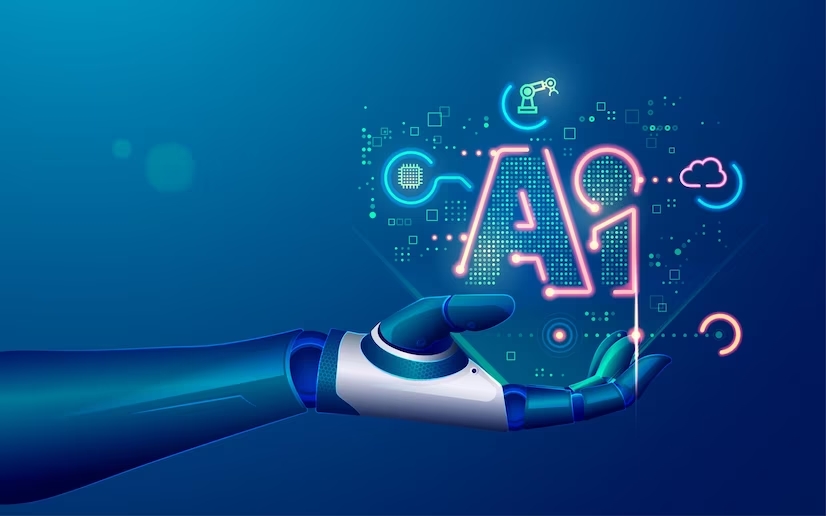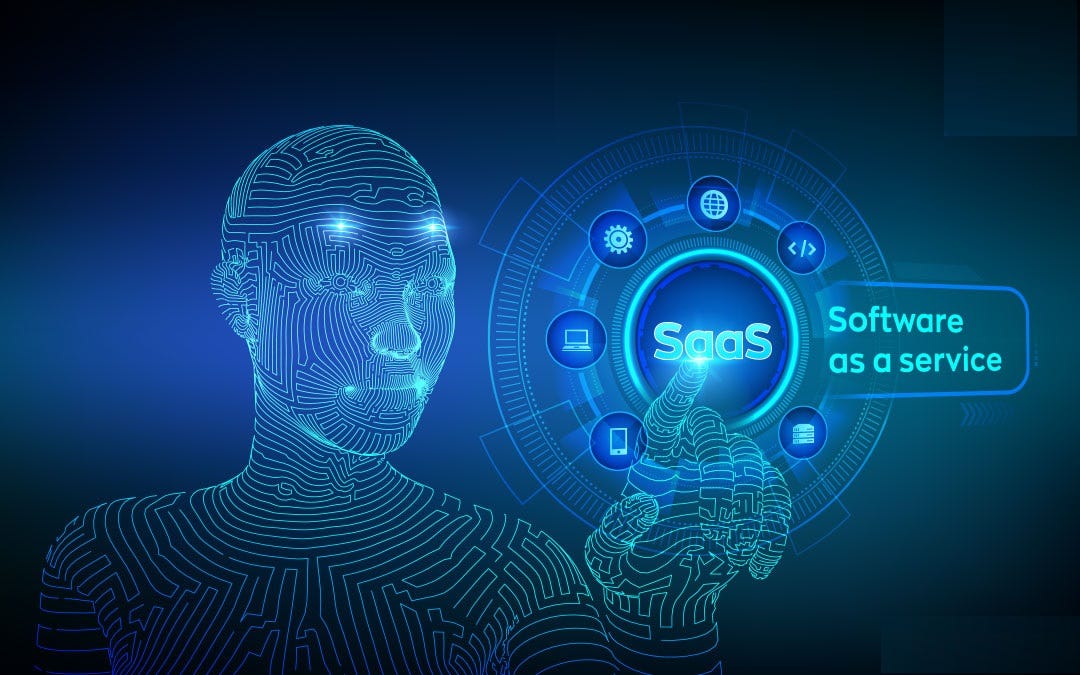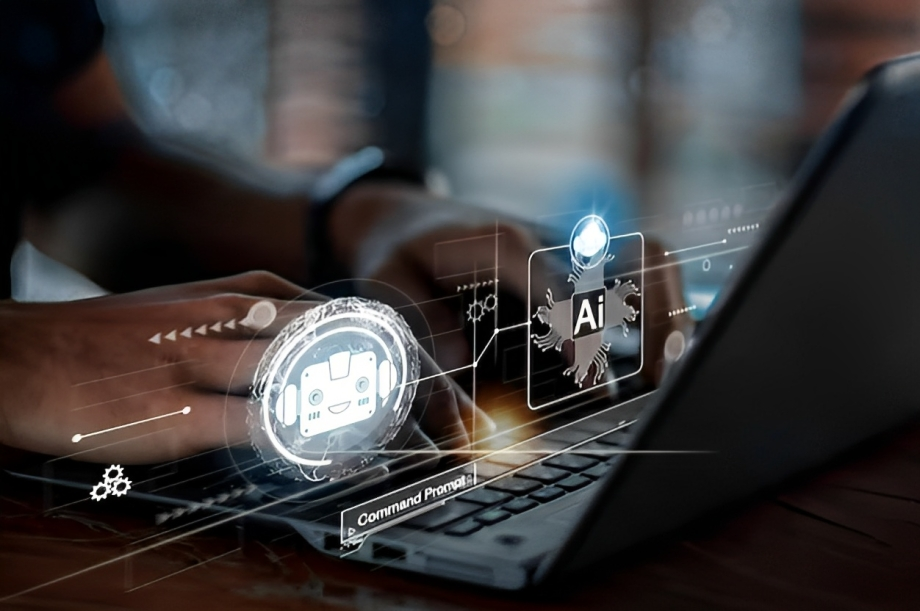The Rise of AI in SaaS
Right now, AI is the talk of the town. Software companies are trying their best to implement artificial intelligence and machine learning into their technology to gain an advantage over their competitors. However, while the initial results seem incredible, we’re still far away from real, thinking computers.
It’s expected that, by the year 2027, the AI market will increase to $407 billion. The technology will provide benefits to businesses and the public domain, with 64% of entrepreneurs hoping that artificial intelligence will help them boost productivity.
Like other industries and niches, AI has had a major impact on SaaS. In fact, it’s hard to imagine a modern software company that doesn’t rely on this technology for its tools. Just to have a better understanding of the impact, the AI SaaS market was valued at $22 billion in 2020, which should increase to $126 billion by 2025.
Artificial intelligence and Software-as-a-Service
The use of AI in the SaaS field is nothing new. For a while now, software companies have relied on machine learning and artificial intelligence to provide users with reliable real-time data. The newest trend is the use of AI for predictive tasks, for example, performing competitive analysis.
Right now, 77% of companies are looking at artificial intelligence as a solution to their operational problems. However, it’s worth noting that some of these brands are still taking things slowly. Out of 77% of potential users, “only” 35% use these platforms right now, while 42% are contemplating their use.
Even the biggest tech providers rely on AI tools to boost their productivity, including giants such as Alibaba and Amazon. Ultimately, the excitement is running high among commercial entities, and we’re yet to see what AI has in store for us in the future.
Machine learning and Software-as-a-Service
Many people like to mention AI and ML in the same sentence, although these two terms refer to different things. Machine learning is an AI subcategory and is a commonplace ingredient of SaaS tools. Unlike artificial intelligence, where software is trying to improve its decision based on input, machine learning only takes into account present data.
You can find machine learning in various modern programs, including Adobe, Survey Monkey, and Salesforce. ML-reliant platforms are incredible for making executive decisions in real time based on data that the tools accrue.
The biggest AI SaaS trends in 2023
The potential benefits of artificial intelligence are immeasurable, but we’re still far away from talking robots. Right now, the technology is still developing, so here is what you can expect from it:
Improved analytics
Analytics is a major part of any brand’s daily operations. According to current data, this market is currently worth $271 billion, and there’s no stopping it. Out of all the different analytics types, companies are most interested in predictive analytics, a branch that can help businesses predict future trends based on past data.
And this is where SaaS comes into play. These tools provide excellent results for spying on competition, extracting customer trends, and deciding where to invest money. In the future, companies will use this software to answer some of the oldest business questions, such as why clients are leaving us and which products will make us the most money.
Business automation
Not only can AI help you make better decisions, but it can also help you make them faster. The data indicates these tools can increase productivity by 20%, which would give a major advantage to any business.
The great thing about artificial intelligence is that it can extract enormous quantities of data with a single click. Something that previously took humans hours and even days to do, the software can do it within seconds. In fact, it can even execute tasks without human interference, which can ultimately cut companies’ salary expenses.
Similar to factory automation, AI will probably have a massive impact on how brands employ, cutting down the required workforce. While this might sound scary, the jobs will likely transfer to other industries and services.
Better security
Cybercrime is one of the biggest threats to business entities. Whether you have your own systems or rely on a third-party provider, there’s always a chance that someone will steal your sensitive data, regardless of all the protection you’re using. Today, more than ever, we’re exposed to this threat as we perform most of our operations online.
Luckily, AI might provide some improvements to this field as well. Unlike humans, artificial intelligence can instantly detect any suspicious activity happening within the tool. In fact, by relying on two-way authentication, the platform might prevent access to anyone who isn’t related to the account.
The thing that makes AI so great for cyber security is the way artificial intelligence assesses human behavior. The technology learns from previous breaches, paying close attention to potential entrance points. If it notices anything suspicious, it automatically notifies the owner while preventing access to the potential intruder.
Increased personalization
For better or worse, consumers have become extremely picky when making purchasing decisions. They don’t want to waste time and money browsing products online; they want to receive immediate suggestions that would fit their needs. Furthermore, they’re looking for customized solutions that would make that product feel unique to them.
AI in SaaS tools monitors how clients behave when interacting with their site. They use heatmaps to analyze clicks and eye movement. On top of that, artificial intelligence can easily track product categories that a person visits to determine what type of product is most suitable for them.
Improved fraud prevention
Besides preventing account access, AI does a fantastic job of preventing unauthorized spending. This technology does a fantastic job tracking users’ regular purchasing behavior and uses this data to assess whether the money was used by the account holder.
AI is looking for anything that might be out of the ordinary and especially big-ticket purchases and frequent purchases. Similar to cybersecurity features, fraud prevention functions are extremely restrictive, not allowing potential intruders to use your funds.
CognitiveClouds is one of numerous software development firms that integrate AI into client software.



















